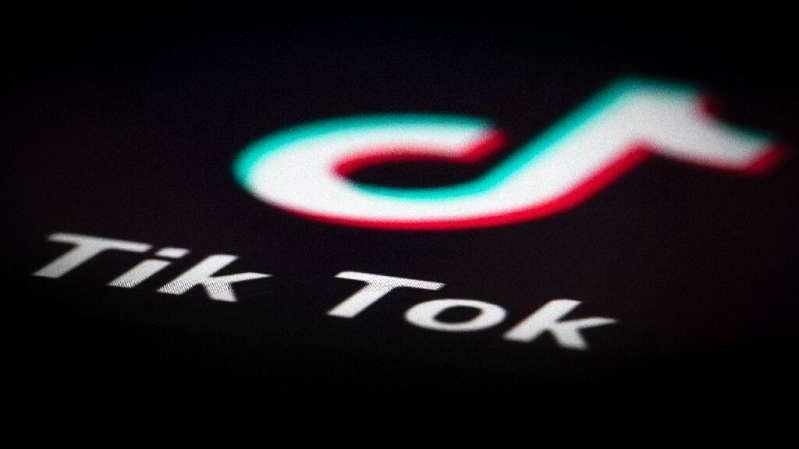
Editor's note: Keith Lamb is a University of Oxford graduate with a MSc degree in Contemporary Chinese Studies. His primary research interests are international relations of China and China's "Socialism with Chinese Characteristics." The article reflects the author's opinions, and not necessarily the views of CGTN.
America is known as the land of innovation, a country proud of its technological cutting-edge capacities. Here, free-market cut-throat competition is trumpeted as the driver that produces the best.
However, recent news that TikTok, which provides free content sites like YouTube a good run for its money, can either be bought up by Microsoft or banned from the U.S. market runs counter to this capitalist fairy tale.
The realities of liberal capitalism undermining its own ideology is nothing new. Before China has itself become a powerful country in the world stage, it actually saw that markets could act as a driver for development. However, the truth was, that despite the ideology of free trade the reality was that a tight-knit club of advanced capitalist states sought to restrict competition by denying competitors. This appears to hold true today too.
In the past, the call for free trade opened up markets through gunboat diplomacy which rapidly deteriorated into a relationship of colonial exploitation where innovation and competition in the colonies were restricted. Instead, they provided looting grounds for the Western states. This relationship was well described by Lenin in his work, "Imperialism, the Highest Stage of Capitalism."
Today too there is a divergence between liberal ideology and its hard power. The news that TikTok will either be banned from the U.S. market or be brought up by Microsoft shows that the dual tactic of both denying competition and looting still lives strong today. Currently, it is reported that Bytedance, who owns TikTok, had already had their proposal of keeping a minority stake in its U.S. operations rejected.
President Trump claims that the acquisition of Bytedance is necessary to protect U.S. consumers from data breaches. Clearly though, there are technological solutions that can easily alleviate such concerns.
Greater transparency of TikTok's coding, with U.S. government agencies, and the walling off of U.S. data from the wider world is one solution. Emerging blockchain technology could also prevent data breaches and could prevent all agencies, including the U.S. government, from accessing private information.

TikTok is hugely popular with U.S. young people. /AP
TikTok is hugely popular with U.S. young people. /AP
The truth is though this isn't the overwhelming concern of Washington, which seeks to protect its technological hegemony. In the U.K., Huawei opened its coding to scrutiny and worked patiently with U.K. security services. Nothing untoward was found but this didn't prevent Washington from pressuring the U.K. to deny market access to superior Huawei technology.
Security concerns then are a cover for maintaining U.S. dominance. We see this same story being played out in Trump's battle to kill off the Nord Stream 2 gas pipeline which will provide Germany with significantly cheaper Russian gas than the U.S. is able to provide. Here, the language of "protecting" Germany from being reliant, for its energy, on a "hostile" power is used to advance the interests of a "friendly" power, i.e the U.S. who wish to sell their shipped in gas at higher rates.
The U.S. actions today then should be a warning to both its partners and also the rest of the world. For stymying information-technological advances, that come out of China today, will be used as a precedent for also rejecting those that come out of India, Africa, Japan, and Europe tomorrow.
The fact is, all future technological advances will have an element of information sharing. In our interconnected world household appliances, cars and even cities will need to communicate with each other. A world where no other country is allowed to develop its technology independently from U.S. hegemonism would be a catastrophe.
One could argue that the U.S. treats China, the way it does, because of who it is rather than what it does. That is to say, China is not a liberal democracy and doesn't share the same Western culture. However, recent developments such as the aforementioned pressure foisted upon its European allies of Germany and Britain show that power politics are the key concern for U.S. foreign policy.
For TikTok and other Chinese enterprises, the best solution is unclear. Perhaps TikTok should cut its losses and sell its operations to Microsoft. However, we across the world must be mindful that Microsoft is a company that is well known for installing informal backdoors for the U.S. government who has been caught even spying on their allies like Germany's Chancellor Merkel.
Chinese technology companies then need to find innovative solutions using emerging technologies, like blockchain which already has backing from the Chinese government, to make sure that IT companies cannot trump state security.
(If you want to contribute and have specific expertise, please contact us at opinions@cgtn.com.)